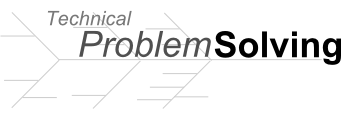My company is getting more distributed. Workers on a project (problem) located at opposite ends of the country and even overseas. For that reason, we are having increasingly frequent phone conferences. They're great for touching base frequently without having to hop on a plane but I have some doubts about how effective these meetings really are.
My earlier post about multi-tasking cites evidence that multi-tasking is a misnomer and yet these phone conferences are a invitation to do so. One ear on the phone, sending an e-mail and perhaps even in IM or working on a document is probably pretty standard behavior for participants in a phone conference. Frequently someone is asked a question and their response is "Pardon, please repeat the question." Their attention was elsewhere.
In the chapter 9 of his book
Brain Rules, John Medina reviews studies which show that optimal learning is when multiple senses are involved . In phone conferences, we only have one of our senses involved. When you're in a meeting, you're learning, unless of course you are doing all the talking. You're learning what others know, what you have to work on, what they're working on.
The phone conference is a less than ideal learning situation. I wonder if there are any studies on the efficiency of face-to-face meetings versus phone only and phone and visuals. I wonder where the break-even point is for the travel costs versus the wasted time in the meetings.
Some suggestions for your next phone conference.
- Send an agenda out beforehand so everyone is prepared to learn about the topics.
- Use some sort of desktop sharing program so everyone is seeing the same information.
- Send out minutes along with any visuals after the meeting is over so everyone can review the outcomes. (Another chance to learn what was discussed).
- If you're a participant. Pay attention. It may seem like you're more productive when sending IMs, EMs, but every time you ask for something to be repeated you're wasting x number of other people's time.
Modern technology has made many things more efficient, but our brains are still "primitive". We learn best by incorporating multiple senses and reviewing the information multiple times.



